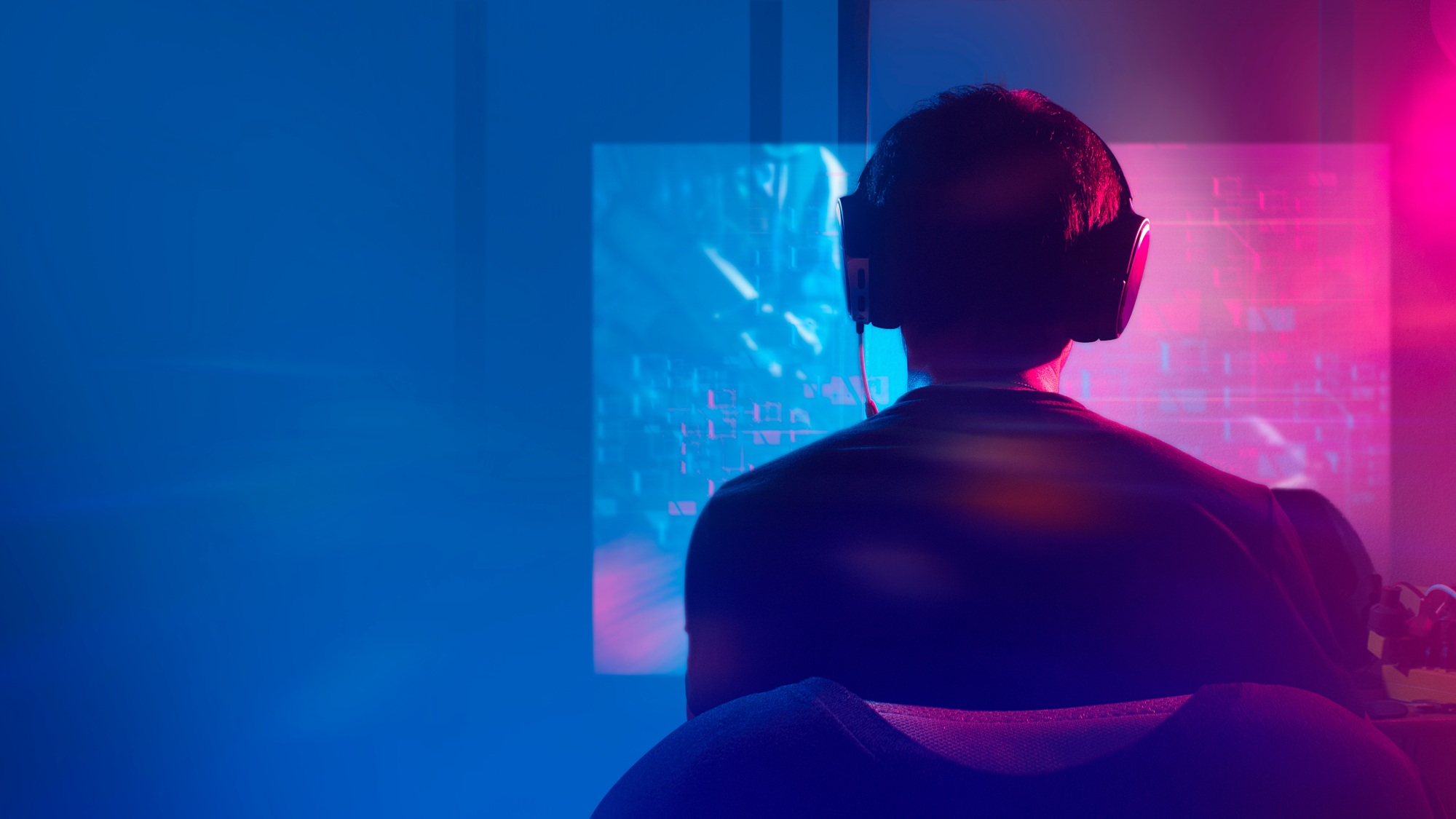
© issaronow / Adobe Stock
“Digital Gaming Is a Defining Cultural Medium of Our Time”
An interview with Professor Christian Schwarzenegger, director of the ZeMKI Lab “Media Change and Long-Term Transformation Processes”
Gaming on PCs, consoles, smartphones, or tablets, is no longer just a pastime for teenagers. Gaming has become part of our daily lives and has far-reaching effects on society as a whole. In this interview, Professor Christian Schwarzenegger talks about this phenomenon.
Professor Schwarzenegger, you speak of digital gaming as a driver of societal transformation. Is its significance underestimated in Germany?
Christian Schwarzenegger: Yes, definitely. Although gaming has long been a key economic factor in media industries, its social and cultural significance in our daily lives is not yet widely recognized in German-speaking countries. Gaming culture significantly shapes the technical, aesthetic, emotional, and social aspects of our communication culture.
What makes digital gaming such an influential medium today?
Digital gaming is the main medium for many younger people – and increasingly for older generations as well. It is much more than mere entertainment: It structures lives, enables new forms of communication, and creates communities. Formats like Let’s Plays, streams, and community platforms have become an integral part of many people’s daily lives. Prominent streamers reach millions of viewers and hold a presence once reserved for news anchors or gameshow hosts – but do so in a far more personal and subjective way. They often offer their followers parasocial relationships, orientation, and even a sense of purpose.

© Beate C. Köhler
In what ways does gaming culture influence our society?
It is an aesthetic laboratory, a social platform, and an echo chamber for entire generations. Gaming logic is now embedded in fitness apps, learning platforms, and nutrition programs. Gaming terms such as “level,” “NPC,” and “boss” have long become part of the everyday vocabulary of many people in Germany. Thus, gaming culture has become deeply ingrained in our society, far beyond the realms of gaming itself.
And how has the role of gaming evolved in the digital world?
In the past, it was about owning games; today, it’s about digital licenses. The gaming experience used to be an individual one, but nowadays it is often collective, whether through streams, communities, or multiplayer experiences. Platforms like Discord and Twitch are now pillars of the digital public sphere, not just their side effects.
What impact does the development of gaming have on political communication?
A significant impact. While pop stars once influenced election campaigns, it is now streamers and gaming creators who combine media reach and trust. The 2025 Bundestag election campaign saw the first collaborations with streamers. In the future, politicians will have to go where their target audiences are – to platforms like Twitch and Discord. This presents traditional political communication with new challenges.
You also mention a shift in media logic and communication. What do you mean by that exactly?
Content conveyed through gaming formats is often emotionally charged and strongly embedded in everyday life. It does not follow the rules of traditional journalism. This is neither trivial nor problematic in itself– but it is different. As a society, we need to understand that.
What role does Gamescom, which takes place from August 20 to 24, 2025, play in this context?
Gamescom is much more than just a trade fair. It is a recurring event with its own social significance – a space where gaming is both displayed and debated. It is a media event in its own right. This explains why attendees include not only gamers but also prominent politicians. When the future comes to town, you don’t want to miss it, even if it’s just to get worked up about it. If you want to stay relevant today, you have to be there.
What are the implications for media policy, academia, and political education?
They must finally recognize gaming for what it is: an integral part of our digital public sphere. It is not enough to view gaming as merely a leisure activity or an economic factor. Rather, if we want to understand how communication, participation, and social dynamics work today, we must take gaming seriously as an independent cultural force.
Further information
Website ZeMKI-Lab “Lab Media Change and Long-Term Transformation Processes”